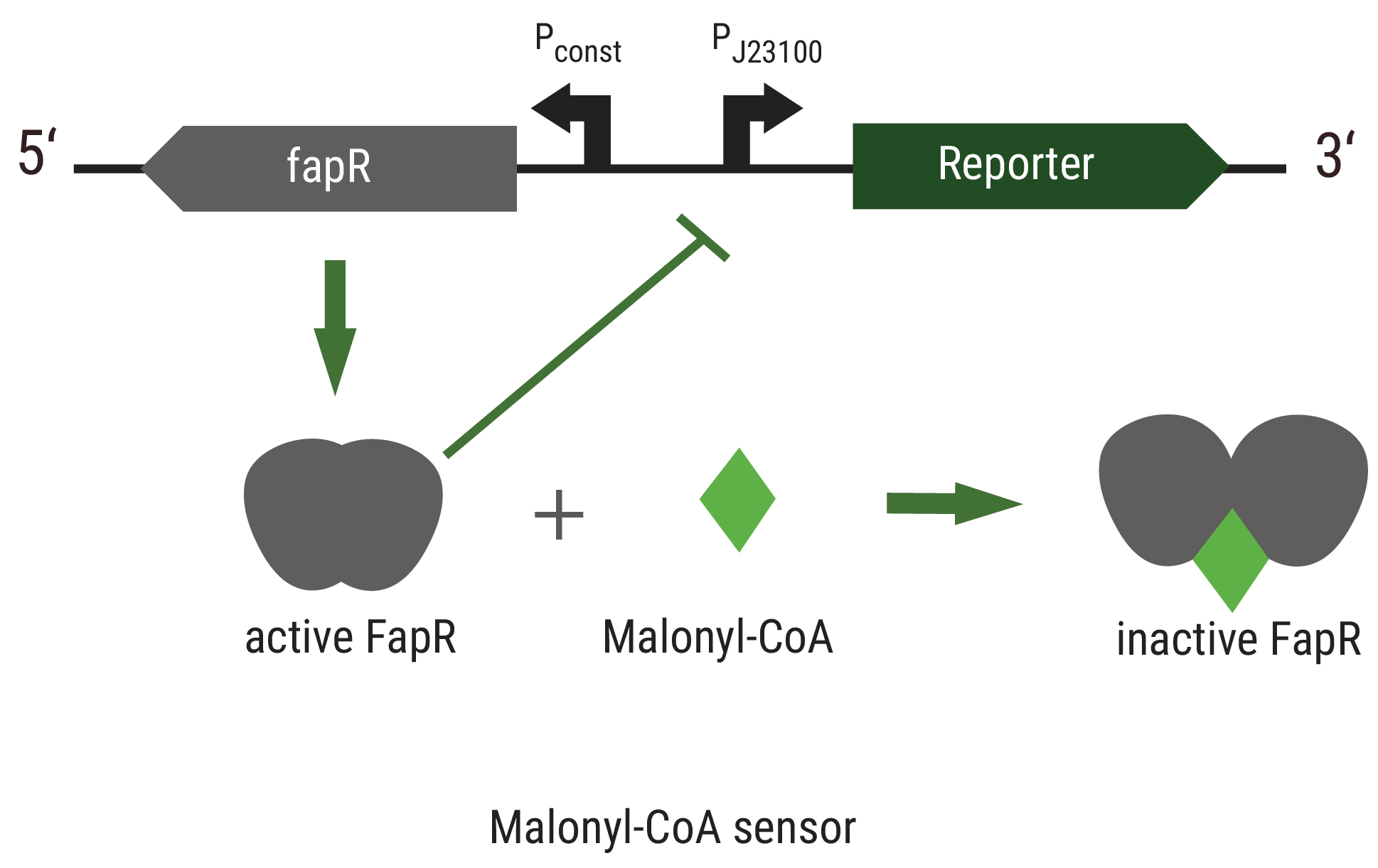Difference between revisions of "Part:BBa K2560302"
| Line 17: | Line 17: | ||
<li>Can with be combined with a several reporter genes. We had the best results using the LUX operon.</li> | <li>Can with be combined with a several reporter genes. We had the best results using the LUX operon.</li> | ||
</ul> | </ul> | ||
| + | |||
| + | |||
| + | |||
| + | <div style="width:100%;display:flex;flex-direction:row;flex-wrap: wrap; justify-content:space-evenly; align-items:center;"> | ||
| + | |||
| + | [[File:T--Marburg--SensorConstructMalonylCoA-01.png|600px|thumb|left| <b> Figure 1 </b> <br>This is a schematic, illustrating the genetic context and assembly of the Malonyl-CoA sensor]] | ||
| + | |||
| + | </div> | ||
| + | |||
Latest revision as of 23:54, 17 October 2018
Malonyl-CoA Sensor. This part is a PhytoBrick variant
piGEM2502_fapO
This part contains the fapO sequence, as well as a strong artificial promoter P_23100. FapO is the binding site for the repressor protein FapR. When FapR is present, transcription of the coding sequence controlled by J_23100 is blocked. When FapR binds Malonyl-CoA it leaves the fapO site and transcription can occur.
Usage and Biology
- This part acts as a promoter controlled by the repressor FapR.
- The system was taken from B. subtilis 168
- Malonyl-CoA is a normal metabolite and completely harmless. For induction, a concentration between 2 and 25 mM can be used.
- We designed this biobrick in order to get a system with a usable readout for the intracellular Malonyl-CoA concentration.
- Can with be combined with a several reporter genes. We had the best results using the LUX operon.
File:T--Marburg--SensorConstructMalonylCoA-01.png
Figure 1
This is a schematic, illustrating the genetic context and assembly of the Malonyl-CoA sensor
This is a schematic, illustrating the genetic context and assembly of the Malonyl-CoA sensor
Sequence and Features
Assembly Compatibility:
- 10COMPATIBLE WITH RFC[10]
- 12INCOMPATIBLE WITH RFC[12]Illegal NheI site found at 7
Illegal NheI site found at 30 - 21COMPATIBLE WITH RFC[21]
- 23COMPATIBLE WITH RFC[23]
- 25COMPATIBLE WITH RFC[25]
- 1000COMPATIBLE WITH RFC[1000]

